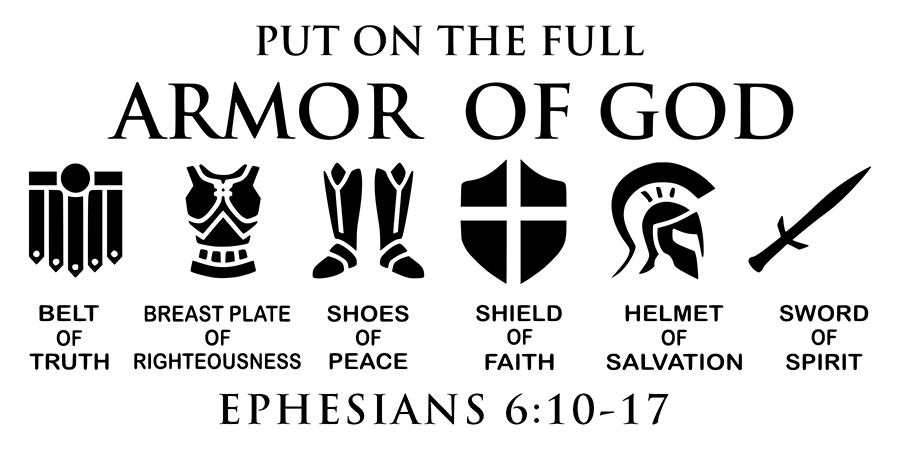You are in Beware the Wolves -> List of False Teachings
This false teaching claims that you go to sleep in unconsciousness when you die. This false teaching is popular with certain sects, cults, and “isms” (e.g., 7th Day Adventists). However, Scripture is very clear on the matter: “to be absent from the body, and to be present with the Lord” (2 Corinthians 5:8). This subject is also covered extensively in the Beyond the Tomb book. Here is a snippet: [1]
Death is a separation. “And it came to pass, as her soul was in departing, (for she died) that she called his name Benoni: but his father called him Benjamin” (Genesis 35:18). How plain this declaration from heaven! Death is simply the separation of soul and body. The soul departs when the body dies. Our materialist [soul sleeping] friends tell us that it is simply the breath, or physical life, that leaves the body when we die. It seems to me that there is more implied in this scripture than that. Surely the inspired writer was speaking of more than the mere exhaling from the lungs. “For as the body without the spirit is dead, so faith without works is dead also” (James 2:26). Here we see that it is the body that goes down into decomposition in death. “The body without the spirit is dead.” So, when the spirit leaves the body the latter is dead. Death, then, is a separation.
“Then shall the dust return to the earth as it was: and the spirit shall return unto God who gave it” (Eccl. 12:7). It is impossible to mistake the import of this passage. The returning to the dust is not the same thing as returning to God. And mark the fact that in death it is only the dust—the fleshly body—that returns to dust again. The spirit does not go down into decomposition with the body, but is separable from it, survives the stroke of death, and returns to God.
…
“Verily I say to you, That this day thou shalt be with me in paradise” (Luke 23:43, Syriac Version). So, it is clear that the very day of their death Christ and the penitent thief entered the paradise of God.
“Yea, I think it meet, as long as I am in this tabernacle, to stir you up by putting you in remembrance; knowing that shortly I must put off this my tabernacle, even as our Lord Jesus Christ hath showed me. Moreover, I will endeavor that ye may be able after my decease to have these things always in remembrance” (2 Peter 1:13-15).
Peter describes his sojourn upon earth in these words: “As long as I am in this tabernacle.” By “this tabernacle” he means his mortal body. Several versions so render it. The body was not Peter, but Peter dwelt in the body. This proves that Peter understood that the soul is distinct from the body. As a man’s house is the place where he dwells, so the body is the house where the soul dwells. His decease (death), he describes as the time when “I must put off this my tabernacle.” Here we have the testimony of an inspired apostle that at death we put off this earthly tabernacle, which is dissolved—goes back to the dust of the earth, while the soul, the inner man, departs and is in a more sacred nearness to Christ, which is “far better.” “Absent from the body and present with the Lord” (2 Corinthians 5:8). This testimony concurs with all Scripture.
Only the bodies of men, that part which returns to dust, sleep in the grave: “And many bodies of the saints which slept arose, and came out of the graves” (Matthew 27:52-53). “And many of them that sleep in the dust of the earth shall awake” (Daniel 12:2). “The dead know not anything” (Ecclesiastes 9:5). This last text refers to participation in things of earth. They know nothing of what is being “done under the sun” (Ecclesiastes 9:6).
Our spirit returns to God (Ecclesiastes 12:7) and continues to exist “absent from the body” (2 Corinthians 5:8), which, to the righteous, is “far better than to abide in the flesh” (Philippians 1:24), “Whether we wake [are alive and remain in the body] or sleep [our body dies], we should live together with him” (1 Thessalonians 5:10). “Your heart shall live forever” (Psalm 22:26).
…
Those who have assimilated this [soul sleeping] doctrine err in confounding the experience of spiritual life with eternal existence. They confound a condition of the soul with its nature. This is confusion and error. The following are some of the scriptures they use: “The gift of God is eternal life through Jesus Christ our Lord” (Romans 6:23). “He that believeth on the Son hath everlasting life: and he that believeth not the Son shall not see life” (John 3:36). “That whosoever believeth in him should not perish, but have eternal life” (John 3:15). “My sheep hear my voice, and I know them, and they follow me: and I give unto them eternal life” (John 10:27-28). “God hath given to us eternal life, and this life is in his Son” (1 John 5:11).
“Eternal life” implies eternal conscious existence without intermission, and “God hath given to us eternal life.” This utterly refutes the soul-sleeping theory.
Those who die in Christ go to be with Christ; for those who die in sin, their spirit is held apart from Christ but fully conscious, awaiting the great Day of Judgment. Here is another snippet from Beyond the Tomb: [2]
Peter declares that God has reserved “the unjust unto the day of judgment to be punished” (2 Peter 2:9). In Jude 6 we read, “The angels which kept not their first estate, but left their own habitation, he hath reserved in everlasting chains under darkness unto the judgment of the great day.” “God spared not the angels that sinned, but cast them down to hell [Greek tartarosas, Tartarus], and delivered them into chains of darkness, to be reserved unto judgment” (2 Peter 2:4). By reference to Matthew 25:41, it will be seen that at the judgment the wicked will be cast into the same hell of torment as that into which “the devil and his angels” are cast.
It is very reasonable then to suppose that at death the souls of the impenitent [the unsaved sinner, unrepentant, not feeling shame or regret about one’s sins or actions] go to the same place where these fallen angels or demons are reserved in chains of darkness unto the judgment, when all together will receive their eternal damnation.
On the great Day of Judgment at Christ’s Second Coming, everyone’s spirit (both the saved and the lost) will be reunited with their eternal/immortal/incorruptible body, and then judgment will be rendered. Those in Christ will be awarded eternal life with God in heaven; those who died in sin will be cast into eternal death in hell, “which has been prepared for the devil and his angels,” separated from God and His Christ forever in eternal “darkness.”









